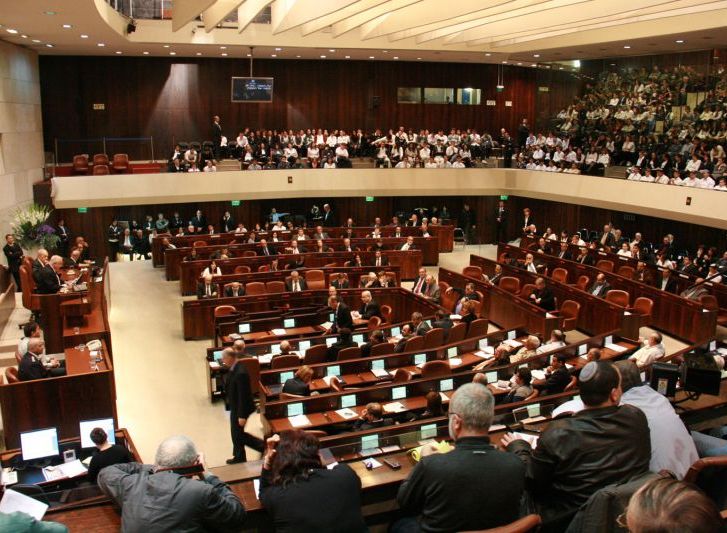Israeli Supreme Court Hears Adalah's Petition Demanding Cancellation of "Admission Committees"
Chief Justice Beinisch: Why should an Israeli citizen be checked for his "social suitability" and take psychological exams in order to live in a non-unique community town?
On 1 February 2011, the Supreme Court of Israel heard two separate petitions - one submitted by Adalah (HCJ 8306/07) and the other filed by the Tel Aviv University Human Rights Clinic (HCJ 3552/08) - demanding the cancellation of "admissions committees". These committees filter candidates wishing to live in around 700 community towns or "community extensions" of agricultural towns – built on state land - by using criterion such as "social suitability" and administering psychological examinations.
At the hearing, Chief Justice Dorit Beinisch criticized the use of "social suitability" as a condition for acceptance of new residents into community towns in Israel. CJ Beinisch questioned why candidates would need to go through an admissions process that examines their social suitability, if they wish to live in communities that, unlike ultra-Orthodox Jewish (Haredim) communities, do not have a unique lifestyle. CJ Beinisch added that an attempt to enforce a common lifestyle in community towns is "irrelevant nostalgia".
Adalah Attorney Suhad Bishara filed the petition in 2007 on behalf of the Zubeidats, a married Palestinian Arab couple who are citizens of Israel. The Zubeidats sought to build a home in Rakefet, located within the jurisdiction of the Misgav Regional Council in the Galilee in the north of Israel. The "admissions committee" rejected their request claiming that they were "social unsuitable" to live in the community town. Both Mr. and Mrs. Zubeidat graduated with honors from the Department of Architecture at the Bezalel Academy of Arts and Design in Jerusalem. They went on to study architecture in Italy in a selective program for academically excellent students.
At the hearing, CJ Beinisch stated, "I still cannot understand why they were rejected. I cannot understand what 'social unsuitability' means in their case."
Adalah argued in the petition that community towns are not designed exclusively for any particular social groups, such as religious communities, and are built on state-controlled lands. However, by sanctioning the operation of admissions committees, in practice the Israel Land Administration (ILA) is granting a small group of people very wide scope to decide who is fit to live in these communities.
The petition further argues that the criterion of "social suitability" is vague, over-broad and arbitrary and not based on specific provisions of Israeli law. This criterion in particular accounts for the small number of Arab families living in community towns and the exclusion of other socially-marginalized groups, including Ethiopians, Mizrahim (Eastern Jews) single-parent families, and gays. "The right to choose the place of residence is derived from the right of the individual to personal autonomy, and any harm to this freedom harms also the individual's liberty, dignity and equality, in contradiction to the Basic Law: Human Liberty and Dignity," argued the petitioners. Moreover, the refusal to accept the Zubeidats' application to live in Rakefet based on their "social unsuitability" harms their rights to dignity, equality and liberty.
The NGO petitioners in addition to Adalah include Alternative Voice in the Galilee (Kol Aher BaGalil), the Mizrahi Democratic Rainbow (HaKeshet), Bimkom: Planners for Planning Rights, the Jerusalem Open House for Pride and Tolerance, and the Arab Center for Alternative Planning.
The Supreme Court decided to give the Israel Land Administration (ILA) and the admissions committee, the respondents in the case, another opportunity to reevaluate their policies and practices. The court decided that the admission committee would reconsider the Zubeidats' application and that the couple would not again be subject to psychological tests. According to the court, the reconsideration is required in light of new criteria set by the Israel Land Administration (ILA).
In October 2007, the Supreme Court issued an order nisi (order to show cause) mandating the community of Rakefet to reserve a plot of land for the Zubeidats future home, until a final judgment was delivered by the court on the case.
Additionally, the Knesset is again considering a bill which would codify the practices of admission committees and the "social suitability" criterion into law. In November 2010, the Knesset's Constitution, Law and Justice Committee approved the Admissions Committees Law, and it was almost enacted into law.
In the wake of the Knesset Constitution, Law and Justice Committee's approval of the Admissions Committees Law: Adalah: There are now 695 communities in Israel where Arab citizens of the state are forbidden to live, 4 November 2010)
Case Citation: HCJ 8036/07, Fatina Ebriq Zubeidat, et al. v. The Israel Land Administration, et al. (case pending)


















